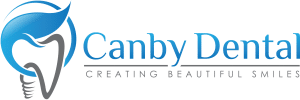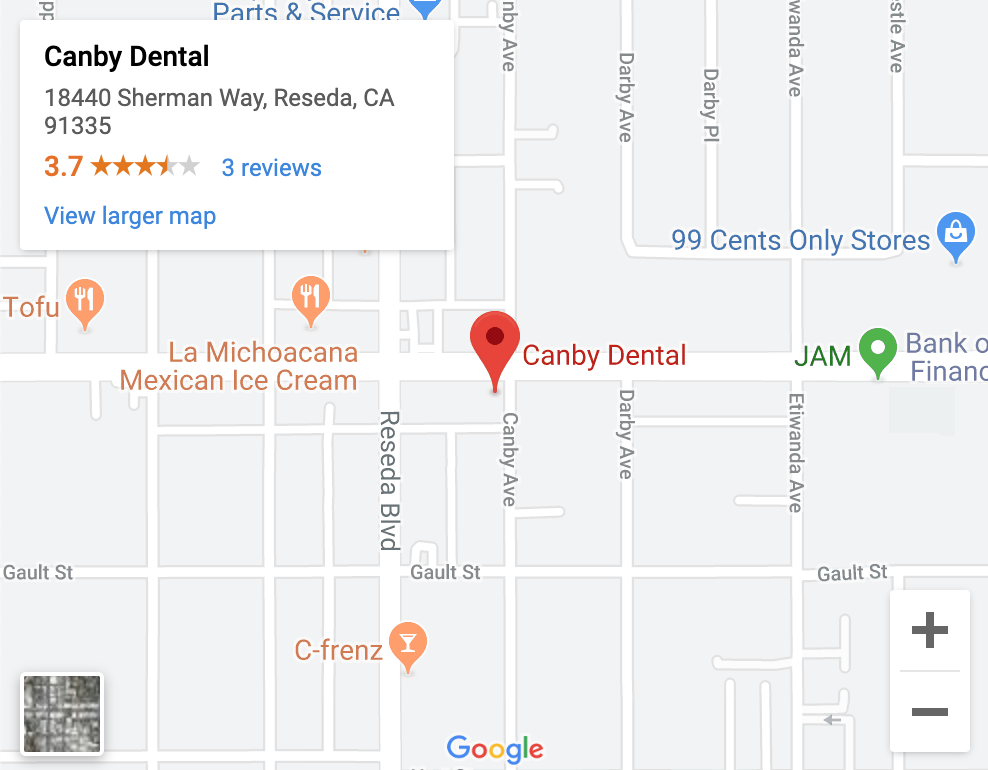Our office and staff are equipped with the training and tools to provide a wide variety of oral surgery procedures. These are procedures that would cause pain under normal circumstances, which is why we provide a number of different pain-blocking forms of sedation or anesthesia. Depending on the duration of the procedure and other factors, patients will sometimes have a choice between different types of anesthesia, ranging from traditional numbing shots to oral conscious sedation. All of the various options will be explained to you by your oral surgeon before the procedure.
Oral Surgery in Reseda, CA
Here are some of the most common types of oral surgery procedures provided by our office, with a brief description of each one:
- Wisdom Teeth Removal: The wisdom teeth are usually the last teeth to erupt from the gums, when patients are in their late teens. It is very common for one or more wisdom teeth to have difficulty emerging from the gums. Due to a lack of space in the mouth and along the jaw, these final molars can erupt sideways or only partially, which is referred to as an “impacted” tooth. Your oral surgeon will typically recommend the removal of impacted or crooked wisdom teeth, because they can lead to worse problems down the road. The removal of a wisdom tooth will sometimes require a surgical incision in the gums to access the tooth, followed by stitches to close the wound at the end of the procedure.
- Dental Implants: Dental implants require oral surgery to replace one or more missing teeth with imitation teeth. This process involves multiple procedures. In the beginning, an incision is made in the gums and an implant is inserted into the patient’s jawbone. After the implant fuses to the jawbone, a subsequent procedure is done to attach a “crown” or a false tooth to the implant. A dental implant is a more permanent alternative to a bridge or a full denture. However, the patient must have a suitable amount of jawbone available in order for implants to be an option. An older patient whose jawbone has deteriorated too much might be prescribed a denture or a bridge instead.
- Jaw-Related Issues: There are several jaw-related issues that can be corrected through oral surgery. Sometimes the upper or lower jaw doesn’t grow correctly, resulting in difficulty with tasks such as eating, speaking, breathing or swallowing. Oral surgery can move the upper or lower jaw into the correct position to fix these issues. Sometimes dentures are not fitted properly and oral surgery can add bone grafts to provide a better fit. Patients with temporomandibular joint (TMJ) disorder can benefit from oral surgery to find relief from headaches and facial pain that result from the condition.
- Injury Repair: If a patient sustains a broken jaw or facial bones, oral surgery can be used to repair these in some cases.
- Cleft Lip or Palate: These conditions result when the mouth and nasal cavity don’t develop correctly while a baby is in the womb. Oral surgery can be performed by a team of specialists over a period of several years to correct cleft lip and cleft palate conditions.
- Sleep Apnea and Snoring: When all other methods have failed to correct sleep apnea or snoring problems, oral surgery can be a last resort. Modern techniques usually involve lasers for this procedure, which removes tissue from the back of the mouth or the lower jaw.
Preparing for Oral Surgery
Your dentist will talk to you when scheduling a date for your oral surgery to ensure that you are as prepared as possible. If you’re feeling anxious about the procedure, let us know so that we can do everything possible to make you feel comfortable and safe. Your dentist will have a specific set of instructions for you to follow before your oral surgery, just as you would receive before any other type of surgery.
This can include recommendations on what to eat or drink before surgery, or when to stop your intake of food or liquids prior to the operation. There will also be helpful tips and reminders, such as not wearing contact lenses or makeup the day of the procedure. If you require sedation, it will likely be recommended that you have someone to drive you to and from your appointment.




